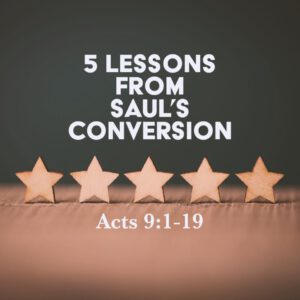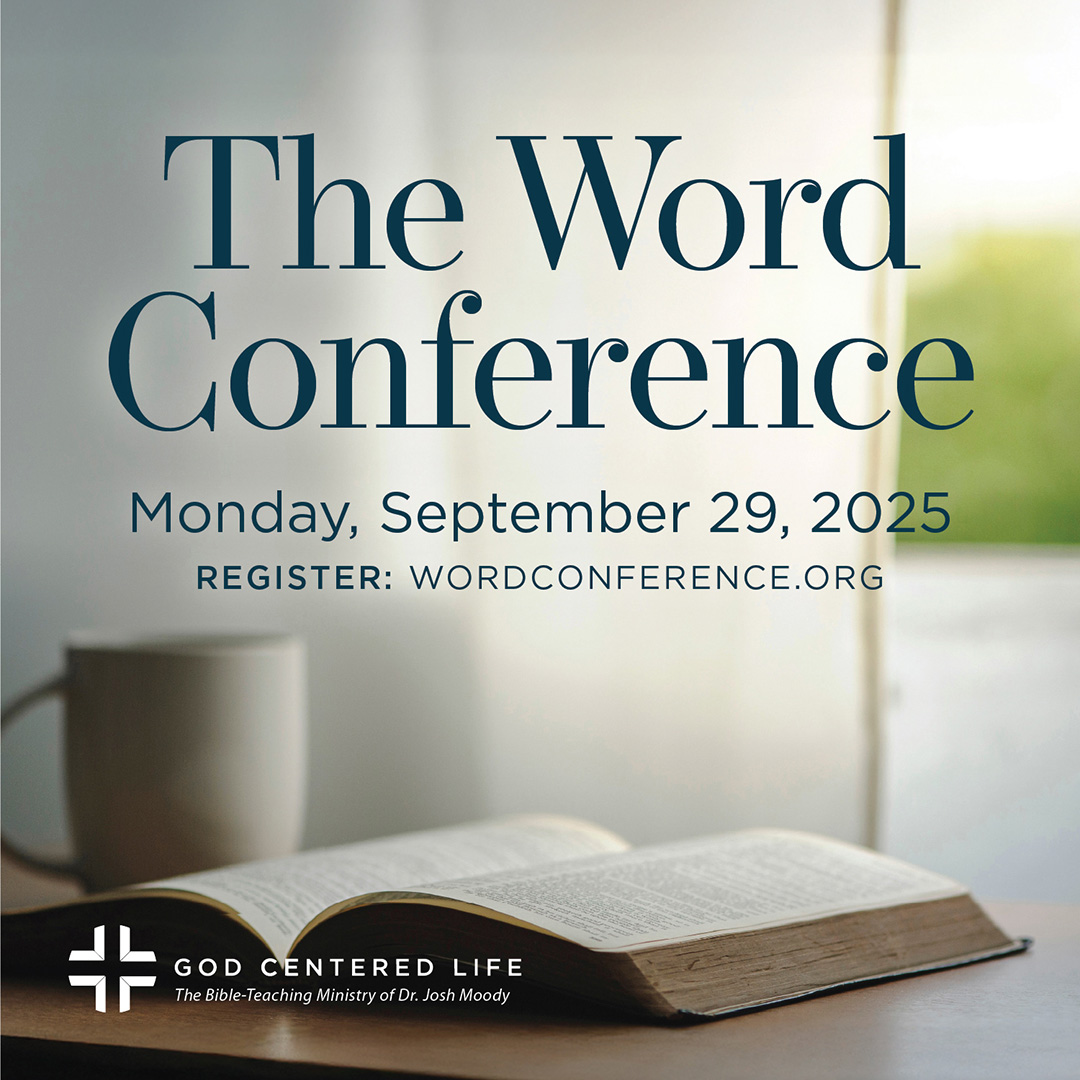Acts 9:1-19: 5 Lessons from Saul’s Conversion
January 15, 2023
TODAY'S BIBLE READING:
Genesis 34-35, Psalm 15, Matthew 6:16-24, Acts 9:1-19

The conversion of Saul/Paul is one of the most dramatic stories in the Bible. Also, one of the most famous. Also, one of the most misunderstood. What is its meaning, and how does that apply to our lives?
First of all, Paul himself tells us what we are meant to learn from his conversion. In 1 Timothy 1:15, Paul says:
“The saying is trustworthy and deserving of full acceptance, that Christ Jesus came into the world to save sinners, of whom I am the foremost.”
In other words, his own conversion stands as a model to teach us that anyone can come to Christ. That there is no sin too bad, no evil too wicked, that can prevent us from receiving the grace of Christ—if, like Paul, we repent. The story then is rightly used as a paradigm of conversion. Certainly not all conversions are as dramatic! But all conversions to Christ are the regeneration of a sinful person, receiving God’s Spirit, and being declared righteous by faith in Jesus. Like Paul, if we are to be truly converted, we must be humbled. We must repent. We must start a new life. If we do that, we will be accepted, however bad our sins may be.
Second, Paul also tells us that while on the one hand his conversion is paradigmatic of all conversions, it is also unique and different, and tells us instead that Paul was an apostle. The marks of an apostle (as we saw from the beginning of Acts chapter 1) are that a person was a witness to the resurrection of Jesus and is appointed by Jesus himself to be his representative (and not just a representative of the church). But what of Paul? He was not with Jesus before Jesus’ death. But Paul became an apostle through his Damascus Road experience. In other words, he did not merely have a subjective experience of Jesus, he actually saw the risen Lord. He insists on this in various places. For instance, 1 Corinthians 15 verses 7 & 8:
“Then he appeared to James, then to all the apostles. Last of all, as to one untimely born, he appeared also to me.”
The point he is making is that in the same way Jesus appeared as risen to the other apostles, so he also appeared to Paul—though in an unusual way, “as to one untimely born.” Or again, he insists on his apostleship because of this experience of seeing the risen Jesus in Galatians 1 verse 12:
“For I did not receive it from any man, nor was I taught it, but I received it through a revelation of Jesus Christ.”
The “revelation” is this actual seeing of Jesus as the Risen Lord, on the Damascus Road. So partly what we learn from this Damascus Road experience is to take Paul’s words as the words of an apostle, and with the authority of God’s Spirit breathed through them.
Third, we learn that no one in this life is beyond saving in principle. It is possible to reject Jesus. Many people do. But in principle, no one is beyond saving. This should encourage us when we think of family members or friends who do not yet know Jesus. And also motivate us to continue to pray for them and witness to them.
Fourth, let us have a word for Ananias. What would have happened if Ananias had not been obedient to his task? God would have found someone else no doubt. And yet Ananias’ obedience matters. Would we obey God to serve someone converted from a background like Paul’s? Sometimes God asks us to do things that are difficult, hard, even risky. Would we obey? Would we put Christ first and risk our job or our livelihood? It is worth asking such questions when we are not being put to the test, so that when we are put to the test, we will have the necessary backbone to be able to stand up and do what is right in God’s eyes.
Fifth, we learn how much Jesus loves the church, for it is his own body. Right at the heart of Paul’s theology is a theology of the church. And much of this is surely derived from this conversion experience—often a man’s or woman’s theology is built upon the way that they first encountered Christ. Here he meets Christ who tells him not, “why do you persecute my people,” but instead “why do you persecute me?” The church is Christ’s body. We should therefore love the church. Commit our lives to the church. Serve the church. Is the church not Christ’s body? Do we love Christ? Then we must love his body too.
ABOUT THE AUTHOR
Josh Moody (Ph.D., University of Cambridge) is the senior pastor of College Church in Wheaton, IL., president and founder of God Centered Life Ministries, and author of several books including How the Bible Can Change Your Life and John 1-12 For You.
WANT MORE?
To receive God Centered Life devotionals directly in your inbox, as well as other resources, enter your email address in the form at the bottom of this page and click "subscribe."


